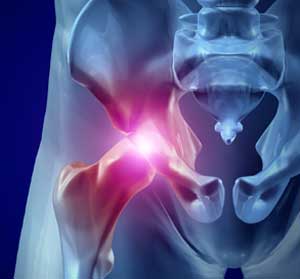
A painful hip can interfere with everyday tasks and keep you uncomfortable. Hip problems impact everyone, regardless of age, and result from a range of causes, including arthritis, fractures, injury, and compressed nerves. If your hip pain does not respond well to non-surgical options, your doctor may suggest hip surgery.
Signs You May Require Hip Surgery
Persistent pain around the hip or groin that gets worse over time may indicate the need for surgery. The pain may radiate down to the knee and worsen with activity. Some patients also have difficulty sleeping due to debilitating hip pain. Other symptoms include:
- Difficulty moving
- Reduced ability to do routine tasks
- Tests reveal advanced joint damage
- Stiffness
- Mental distress
- Inflammation or swelling
If conservative treatments don’t relieve your hip pain, surgery may be an option. Other patients become frustrated with medication or cortisone injections that only relieve hip pain for a few months. If you are worried about the side effects of pain medications and other treatments, consider alternative treatments like prolotherapy.
Surgical Options
The various types of hip surgeries include the following.
Hip Arthroscopy
Hip arthroscopy diagnoses a range of hip problems via an arthroscope, a flexible tube with a camera. An orthopedic surgeon inserts this device into your hip joint via small incisions at the side of the hip. Thus, the surgeon avoids making a large cut through the soft tissues to examine the hip joint.
The camera on the arthroscope transmits pictures to the surgeon’s monitor, which allows the doctor to diagnose and even treat some conditions. For example, the surgeon can remove loose fragments of cartilage or repair a labral tear. Hip arthroscopy causes little trauma and has a short recovery time.
Hip Replacement
Hip replacement surgery replaces a diseased or impaired hip joint with an artificial joint. The artificial implant is typically made of ceramic, metal, or plastic. You can either get a partial or full hip replacement, depending on the extent of the joint damage.
The two approaches to hip replacement are the posterior approach and the anterior approach. In the anterior approach, the surgeon makes the incision on the upper thigh’s front part. The incision is made along the outer bottom during posterior hip surgery.
Hip replacement may be an option if your hip pain interrupts daily activities or conservative treatments are no longer effective. Advanced arthritis is often the reason to get hip replacement surgery.
Revision Hip Surgery
Depending on your daily use, an artificial hip joint undergoes wear and tear, and it may no longer be effective. Revision surgery will be needed to repair or replace the worn-out implant. Artificial hip implants also get dislocated, infected, or inflamed. Revision hip surgery reduces pain, restores mobility, and improves the range of motion.
Prolotherapy: An Alternative to Hip Surgery
While hip surgery effectively reduces pain and improves the hip’s stability, it carries many risks. Some possible complications include infection, blood clots, dislocation, and loosening of implants.
Prolotherapy is an effective non-surgical treatment for hip pain, stiffness, inflammation, and reduced range of motion. During the treatment, an irritant solution is injected into the hip joint to encourage the healing of the tendons and ligaments. Prolotherapy stimulates the body’s natural healing process to treat arthritis, unstable joints, and strains.
Prolotherapy eliminates the need for hip surgery by treating the root cause of your discomfort. Contact Boston Prolotherapy & Orthopedics today to learn about what prolotherapy can do for you.
